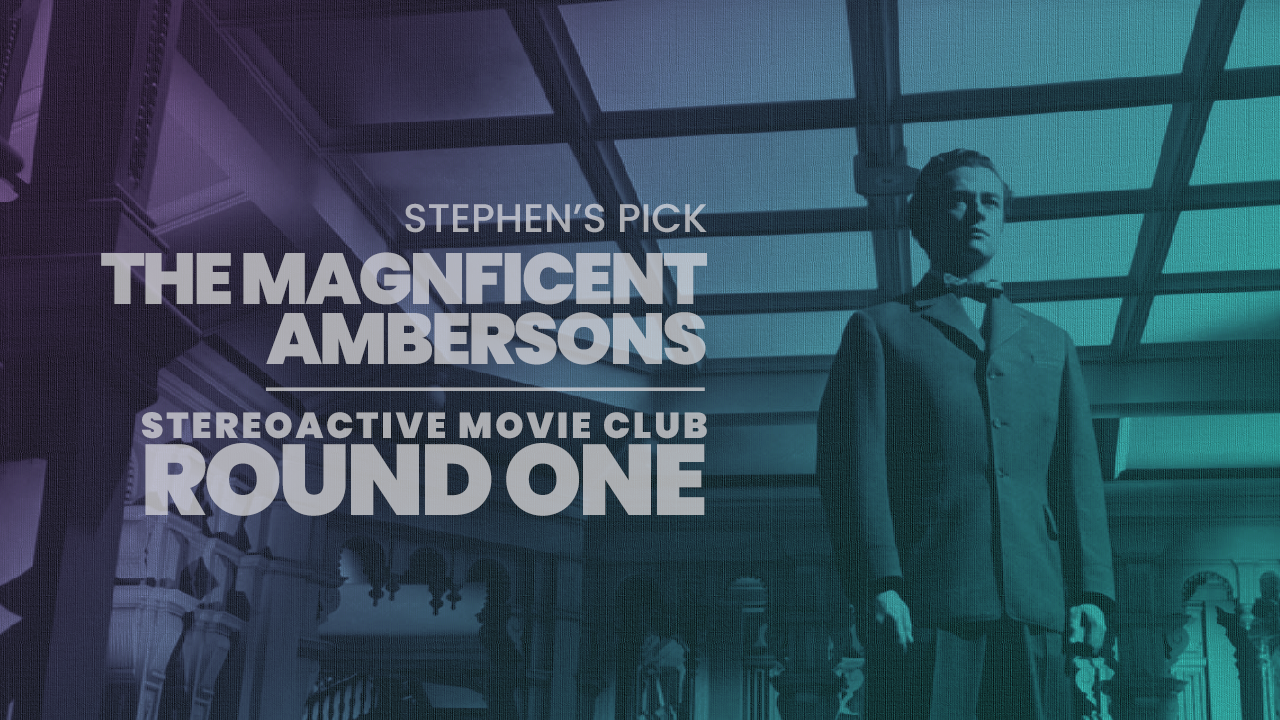Stereoactive Movie Club Ep 3 // The Magnificent Ambersons
Directed by Orson Welles, 1942's 'The Magnificent Ambersons' was famously taken away from Welles before he could finish it.

Available on Goodpods, Apple Podcasts, Spotify, and anywhere else you listen to podcasts.
It’s Stephen’s pick: Released in 1942 and directed by Orson Welles, ‘The Magnificent Ambersons’ depicts a wealthy midwestern family at the end of the 1800s and start of the 1900s. Based on the 1918 novel by Booth Tarkington, its prologue sets the Ambersons up as either the toast of the town or privileged aristocrats lording it over everyone else. After a young suitor named Eugene Morgan embarasses himself – and by extension, her – the object of his affection, Isabel Amberson chooses another man as her husband and has a spoiled son who others in the town hope will one day meet his “comeuppance.” After going off to school, this son, George, returns to his family just as his own father is in dire financial straits and Eugene Morgan has himself returned from years away, both with a daughter and a successful business producing automobiles. After Isabel’s husband passes away, she begins to actively rekindle her former romance with Eugene Morgan, who’s obviously still in love with her. But this relationship upsets Isabel’s son, George who, fearing loose talk and scandal, keeps the two apart.
The movie was Orson Welles’ follow-up to ‘Citizen Kane,’ a film which had caused some controversy. As a result, RKO, the studio behind both films had lost some confidence in its deal with Welles and after unfavorable test screenings, they famously recut the movie and shot a new ending while the director was out of the country. The cut footage was destroyed and the film that went out to theaters was not the one Welles had planned. The incident only fueled the image of Welles’ as a “difficult” filmmaker to work with, at least as far as studios were concerned, which may have helped to make it harder for him to work as a director in the years to come. Despite the compromised state of the film, it’s still regarded as a classic, though one that people tend to regard with a sense of regret for what could have been.
For more information on this podcast, including where it's available, please visit the show's homepage.

